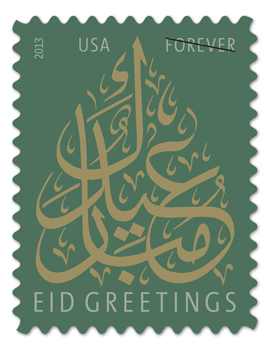Dr. Muzzamil Siddiqui, Fiqh Council of North America
Allah Almighty says, [To the Madyan people (We sent) Shu’aib, one of their own brethren: he said: “O my people! Worship Allah: ye have no other god but Him. And give not short measure or weight: I see you in prosperity, but I fear for you the penalty of a day that will compass (you) all round. “And O my people! give just measure and weight, nor withhold from the people the things that are their due: commit not evil in the land with intent to do mischief. “That which is left you by Allah is best for you, if ye (but) believed! but I am not set over you to keep watch!” They said: “O Shu’aib! does thy (religion of) prayer command thee that we leave off the worship which our fathers practiced, or that we leave off doing what we like with our property? Truly, thou art the one that forbeareth with faults and is right-minded!” He said: “O my people! see ye whether I have A Clear (Sign) from my Lord, and He hath given me sustenance (pure and) good as from Himself? I wish not, in opposition to you, to do that which I forbid you to do. I only desire (your) betterment to the best of my power; and my success (in my task) can only come from Allah. In Him I Trust, and unto Him I look.] (Hud 11:84-88)
Prophet Shu`aib (peace be upon him) was a great prophet of Allah. He was sent to the people of Madyan around the time of Prophet Abraham (peace be upon him). Prophet Shu`aib was sent among a people who were very much involved in business. These people were very proud of their business knowledge and success, but they were dishonest. He told them to observe ethics in business. They became very angry with him and told him, “Don’t mix religion with business.” The Qur’an tells us that Allah’s punishment came upon those people and only Prophet Shu`aib and his followers were saved.] (Al-Ahzab 33:21).
It is indeed serious that every one must adhere to ethical standards in business. Business and ethics are not separate, rather they are interconnected. Allah says in the Qur’an,[For you in the Messenger of Allah, there is a fine example to follow
Prophet Muhammad (peace and blessings be upon him) was an ideal human being in every respect. He was the best teacher, preacher, and guide; the best statesman, lawgiver, judge, diplomat, negotiator of treaties, and military commander; the best family man, a good husband, a compassionate father and grandfather, a good neighbor, and friend of his people. He was also a very honest and successful businessman.
Prophet Muhammad was chosen by God to be His last prophet and messenger at the age of 40. Before that he was very much involved in business. He was born in Makkah, which was a popular trade center in Arabia. Caravans from Syria in the north and Yemen in the south used to pass by Makkah. Prophet Muhammad would join in these caravans. It is reported that he traveled to Syria, Yemen, Bahrain, and many other places in Arabia in these caravans. Some historians have also suggested that he probably traveled to Iraq and Ethiopia.
From his early age, he was involved in commerce. He had a good reputation as a hardworking, honest, truthful, and very successful businessman. It was due to this reputation that Khadijah, a wealthy businesswoman, hired him to work for her business. Many people in Makkah had asked for her hand and worked for her, but they either cheated her or she was not satisfied with their work. Finally, she found Muhammad (he was not a prophet at that time) and she asked him to work for her. He made several business trips on behalf of her and was very successful. She was impressed with his work as well as his impressive personality, they later got married.
After marrying Khadijah, Prophet Muhammad continued his work and took several business trips throughout parts of Arabia. Ancient Arabia used to have commercial fairs in almost all major towns and regions; it is probable that Prophet Muhammad visited some of these commercial fairs. After becoming a prophet, his business activities decreased, although he would occasionally participate in business transactions. His vast business experience helped him in dealing with people with great care. He often used to mention the names of people and tribes whom he met in his journeys. People were often amazed of his knowledge of people and their regions.
The Prophet emphasized that honesty and kind dealings with customers are the secrets of success in business. He said, “The truthful and honest merchant is associated with the Prophets, the upright and the martyrs” (Al-Tirmidhi ). “God shows mercy to a person who is kindly when he sells, when he buys and when he makes a claim” (Al-Bukhari). Prophet Muhammad gave many teachings on business and economic issues, he covered almost every aspect of business and economics. Here are only a few major principles of fair business dealings according to Islam.
1. No fraud or deceit, the Prophet (peace and blessings be upon him) is reported to have said, ” When a sale is held, say, “There’s no cheating” (Al-Bukhari).
2. Sellers must avoid making too many oaths when selling merchandise. The Prophet (peace and blessings be upon him) is reported to have said, “Be careful of excessive oaths in a sale. Though it finds markets, it reduces abundance” (Muslim).
3. Mutual consent is necessary. The Prophet (peace and blessings be upon him) is reported to have said, “The sale is complete when the two involved depart with mutual consent” (Al-Bukhari).
4. Be strict in regard to weights and measures. The Prophet (peace and blessings be upon him) is reported to have said, “When people cheat in weight and measures, their provision is cut off from them” (Al-Muwatta ‘). He told the owners of measures and weights, “You have been entrusted with affairs over which some nations before you were destroyed” (Al-Tirmidhi ).
5. The Prophet forbade monopolies. “Whoever monopolizes is a sinner” (Abu Dawud ).
6. Free enterprise, the price of the commodities should not be fixed unless there is a situation of crisis or extreme necessity. [more]
Additional resources from Rafik Beekun:
1. Islamic Business Ethics by Rafik Beekun. International Institute of Islamic Thought, USA, 1997.



















spiritofinstitutions
March 6, 2009
I’m happy to find your blog. I am studying the connections between spirituality and organizations, and I’m reporting on that in this blog: http://spiritofinsitutions.blogspot.com. I appreciate your thoughtful and in depth integration of principles from Islam into management and the workplace. I look forward to reading more.
Do you know of any people in Minnesota who are focused on integrating Islamic principles into business? I’d be interested in connecting with them.
Gratefully,
Michael Bischoff
michael@clarityfacilitation.com